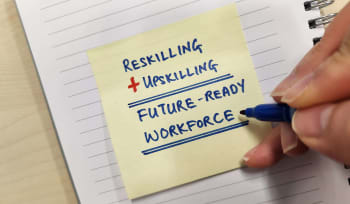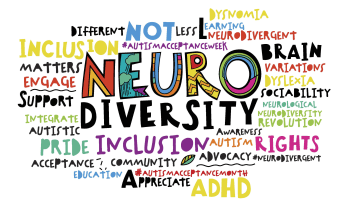This informal CPD article on Emotional Resilience and Entrepreneurship was provided by Rapha Therapy Services, whose aim is for more accessible psychological therapy and training to be made available to children and Adults respectively.
Covid 19 has placed entrepreneurs in unprecedented and uncertain times which requires significant adaptability, innovation, creativity and resilience. Research suggests that 58% of entrepreneurs experience mental health difficulties due to multiple competing demands and according to the Mental Health in Entrepreneurship Survey (2018) 21% of entrepreneurs experience anxiety, 19% experience depression and 41% stress. Moreover 50% of employees are struggling with their mental health according to a report published by MIND in 2018.
What is resilience and how does it develop?
In order to enhance your resilience it is important to comprehend what it is and how it develops. Emotional resilience is critical in the crisis we are encountering as it is a protective factor against the development of stress, anxiety and depression whilst contributing to reduced employee sickness days and improved performance and productivity.
Resilience has been defined in various ways by many researchers and I will elucidate some of these to ensure we have a shared understanding of this concept. Resilience can be described as your ability to bounce back emotionally, adapt, recover and grow during or after difficult and stressful times (Rutter 2008). Resilience is ‘keeping your head’ in the midst of adversity and positively adapting to stressful situations (Hopf 2010). Finally Resilience can be likened to an elastic band that stretches and adapts when pulled but doesn’t snap or break under pressure. How would you describe the resistance of your elastic band?
The way that we perceive and interpret setbacks is important as it impacts upon our subsequent responses. A leading Psychologist, Martin Seligman highlights the importance of optimism during adversity and suggests that permanence is important as resilient individuals view the effects of bad events as temporary rather than permanent. Moreover pervasiveness is important in resilient Individuals as they don’t allow setbacks to affect other unrelated aspects of their lives. For example they would say ‘I’m not very good at marketing and sales’ rather than ‘I’m not a successful entrepreneur’. Finally personalization is important as resilient Individuals don’t blame themselves when bad situations arise. A resilient Individual would acknowledge the role of external factors such as other people or resources.
Resilience can be enhanced by developing Rivers to Resilience which include:
- Emotional Awareness – enhancing emotional awareness is critical in building resilience and emotional intelligence as this positions you to understand what you are feeling emotionally, triggers and antecedents to emotional fluctuations whilst facilitating you in being able to succinctly articulate this. It’s important to identify your triggers to your emotional changes as this will assist with self-regulation which successful entrepreneurs are skilled in doing. Emotional awareness can facilitate business leaders in succeeding as they are able to effectively connect with their network, customers and colleagues. Emotional awareness will enhance your interpersonal effectiveness and can be developed by establishing a daily routine of journaling which is known to improve emotional wellbeing, provide an opportunity for positive self-talk whilst illuminating unhelpful self-limiting beliefs which may be hampering your business growth and success.
- Emotional Self-regulation – regulating your emotions is critical in resilience as it provides clarity which is important in business. It is important to accept distressing emotions such as anxiety whilst utilizing strategies to minimise the impact upon yourself. Mindfulness, compassionate thinking, reframing negative beliefs, controlled breathing exercises and progressive muscle relaxation exercises are effective strategies for emotional self-regulation.
- Social support and community – Establishing and engaging with a robust business network or community is important for building resilience as it’s an opportunity for vicarious learning, safe space to express gratitude and to gain support which is critical in resilience. Social connectedness and community is important in building resilience and this can be achieved through gaining support from family, friends. Mentors and coaches who can provide a space for you to model and emulate emotional resilience.
We hope this article was helpful. For more information from Rapha Therapy Services, please visit their CPD Member Directory page. Alternatively please visit the CPD Industry Hubs for more CPD articles, courses and events relevant to your Continuing Professional Development requirements.













